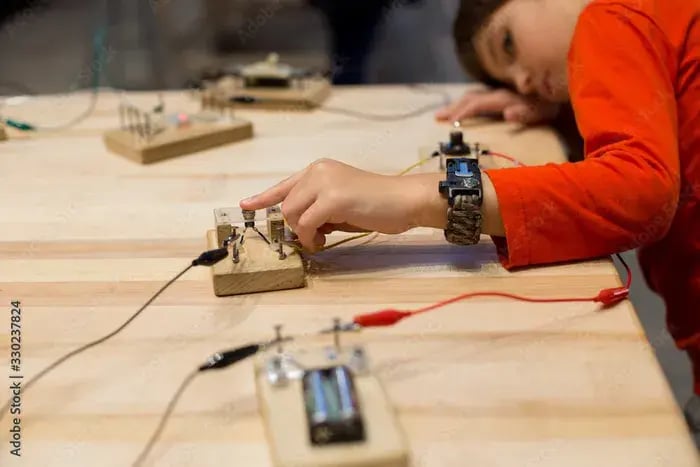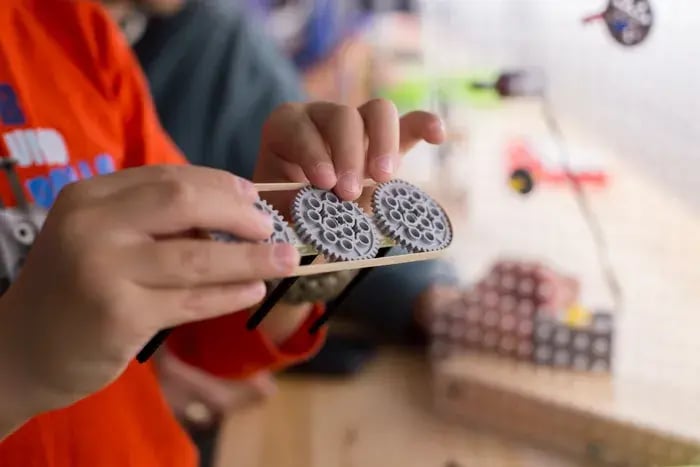Introduction
Children are naturally inquisitive beings who ask multiple questions and wonder how things function. Science fairs give an opportunity to pursue this curiosity one step further toward real-world application. These encourage kids to try experiments, solve problems, and come up with new ideas while having a ball. The science fairs also give kids an opportunity to present their creations, build up their confidence levels, and become more analytical in thinking. Active participation makes children understand science, technology, and logical reasoning. Here are 9 ways through which science fairs encourage innovation and imagination in kids.
Hands-On Learning Experience
Science fairs help children get past textbooks and conduct practical experiments. It involves working on projects, where through conducting experiments, they prove theories, analyze results, and understand the scientific method. This approach makes learning more practical and helps kids grasp ideas far better than through reading.
Develops Problem Solving Skills
When children come up with their science projects, they face some challenges that will require them to think logically and come up with creative solutions. They learn how to approach a problem methodically, explore other possible solutions, and refine hypotheses. This analytical and problem-solving ability is vital and transcends science.
Sparks Curiosity and Scientific Inquiry
Science fairs make children inquisitive by encouraging them to ask "why" and "how." They even begin asking the same questions habitually and investigating further, which results in a better understanding of the world. This type of inquiry-based learning creates a scientific mindset that can get little kids through all their school.
Builds Confidence and Presentation Skills
A science fair requires kids to present a project and explain the findings to the audience. It helps them develop confidence, enhance public speaking, and clearly convey complex ideas. Effective communication is an essential skill that benefits them academically and professionally.
Teamwork and Collaboration
Science fairs are more often group-related projects, whereby students have to work together in groups. Co-working teaches them the importance of teamwork, delegating, and sharing ideas, which is usually good preparation for jobs that require so much teamwork when they grow.
Nurtures independent thinking

Science fairs make children independently think and formulate new solutions to a problem. In contrast with assignments in a classroom, whereby the instructions were given, it allows children more freedom to make experiments and even innovations. Through this, kids learn responsibility as well as their ability to make rational decisions.
Develops Multiple Disciplines
Science fairs involve concepts from various subjects, including math, engineering, and technology. The kids apply knowledge from different areas to develop their projects, thus making them realize the connections between different fields of study. Such interdisciplinary learning makes their education more comprehensive.
Encourages Perseverance and Resilience

Science projects require many trials to get the expected results. The children learn that failure is a part of success, and that persistence leads to progress. This kind of mindset helps them overcome obstacles in any field.
Learning becomes Fun and Engaging

This way, children learn through science fairs and do not consider education as a routine task in school. The process of experimentation, discovery, and innovation makes education more enjoyable and encourages lifelong learning. Science fairs should incorporate brain games for kids to make them more interesting.
Deepali is a senior food and wellness writer with over a decade of experience in top media houses, crafting engaging narratives. She is a professional home baker and loves exploring food from every corner of the world to reading cookbooks. She believes a healthy lifestyle is a combination of both mental and physical fitness. Her goal always remains to keep moving, eating seasonal and practicing gratitude.
The views expressed are that of the expert alone.
The information provided in this content is for informational purposes only and should not be considered a substitute for professional medical advice, diagnosis, or treatment. Always seek the advice of your physician or another qualified healthcare provider before making any significant changes to your diet, exercise, or medication routines.
References
https://www.mekathlon.com/blogs/science/why-science-exhibition-is-important-for-kids
https://school.careers360.com/articles/why-should-school-children-participate-in-science-fairs
















